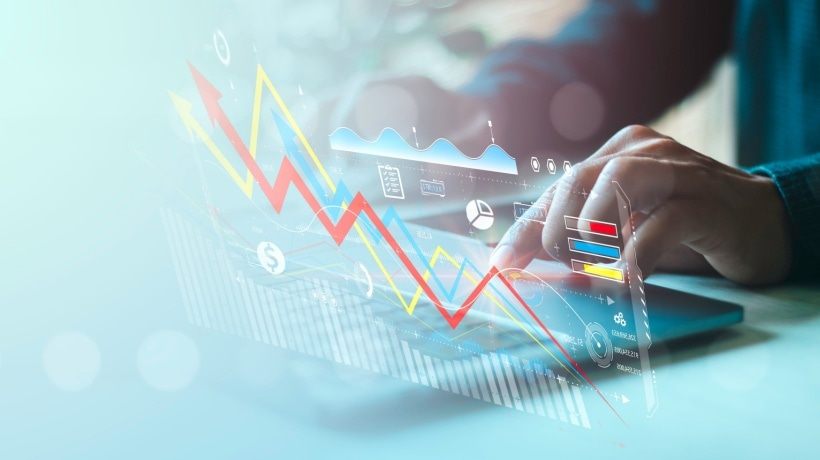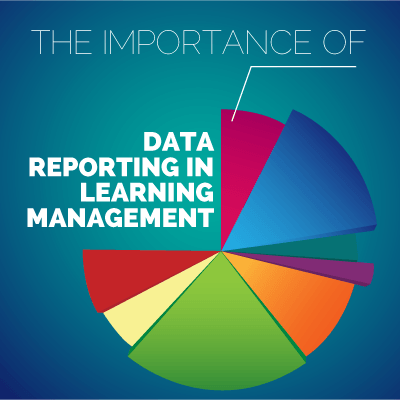Big Data And New People Management Based On Data
Here is what Rafa Diaz told LearningLovers.org about Big Data and new people management based on data:
What Kind Of Predictions Can Be Made In Human Resources (HR) Management With Big Data?
"I think talking about predictions that can be made in HR with Big Data is a bit daring right now, because this is not a crystal ball. What we can do with Big Data is to analyze data, and from there to see trends and patterns that allow us to anticipate things that might happen. But above all, it depends on the data collected, analyzed, and related. For example, you can get to build algorithms from different data such as behavior in social networks, the organization registered systems, etc. that can reach to anticipate the unwanted leaving of a professional from the organization. This way, from the HR department or the people management department they can have conversations to re-engage this person in the project. What it does allow us to predict depends mainly on what we get and what we want to predict, especially if we have data for it. I think the key is to have identified the data that we want to request. Nothing will come out in a spontaneous way."
What Indexes Are Requested In The Management Of HR Data?
"Let's see; in terms of rates, this is what I say: It depends on what you want to know. There are the most classic indices: Performance per person, hours of training, etc., although I understand that this is not anything new in Big Data. But in the end, I think that Big Data is not so much based on rates, but on the correlations and data relationships themselves, how they relate, and the questions you request from data and the information you want from them. From what you want to get, you will have identified your indicators. But it also depends a lot on how your organization is and the data access you have."
Are There Any Trends Related To What Data Is More Demanded?
"We can talk more about how they evolve or how data goes. But it is true: Especially in Spain, which is at the origin of which is the analysis of Big Data and indexes (because in fact we find many companies that even they do not have their own systems and computerized structured data), they continue working hard to excel in a very primitive way in what is data analysis. As for index, there is no trend itself. I think that, above all, there are great interests in attracting people organizations want to hire, because every time profiles of those who work in the companies, or those who are requested by businesses, are scarcer: There is hardly what is being more demanded, and then also the critics profiles in the company do not leave. I think that's where most are now focusing all efforts of the organization in general, and also in data."
What Tools Exist For Measuring Data That Are Available To Companies?
"Sure, Big Data is not just measurement. Yes, there are different platforms. In fact, there is a congress called the Tucana People Analytics which highlighted 5 tools: One for example is Saberr, a predictive analytics software, which will help you design, hire, and manage high performance teams; another is One Model, which adds and stores data in an intelligent cloud and has a platform that lets you view the data; then there is Launchpad Recruits, which is a new generation video platform, where video from interviews allows analysis without having a person actually interviewing; or Workometry, a employee experience software, where text is analyzed and has mechanisms of machine learning; then, the most widespread and one that is more evolved is the IBM solution, Kenexa Talent Insights, which is a more complete software that begins to offer predictive analysis. But above all, it depends on the use we do. I think the key is the definition and not the analytics itself."
What Are The Sources Of Information For Obtaining This Data?
"As for sources, anyone you can pick up. Today we produce so much data, that if we are able to collect these sources, everything that can be susceptible of monitoring, we can use it to analyze the information. I think the problem is to build systems for collecting solid information, where in the end the information we collect is constant, real, continuous, and not sporadic or with interruptions in data collection; what is called "joggling"... everything gets to be as much 'joggled' as possible."
What Kind Of Decisions Depend On The Resulting Reports?
"Here too, in terms of decisions, of course it will depend on each company, where they put their focus. But as I said before, I think it is affecting the strategy of attracting profiles and subjects of commitment, to engage people so they will not leave. Then also, of course, there is the issue of development, to minimize the gap that we have among the competencies, skills, and knowledge that people have today in a company and that they may have tomorrow or in the coming years. Because it is true that we live in a concept where organizations are changing very fast; in fact, life expectancy in companies is becoming smaller. Then we are facing a much more competitive environment, and that requires that all companies have to adapt much faster. All reports can help take such decisions; they will always be welcome."
How Does The Analysis Of Big Data Affect The Career Plan, Performance Analysis, Promotion, And Remuneration Of Employees?
"To me, this is no longer just an analysis of Big Data: Each of these are databases with indicators. I think the value of Big Data is not there, but in how all this relates to all other things. For example, we could correlate a certain training plan or a training itinerary with increased sales. Then, from there, with Big Data we can get the correlation between these two parties, the ROI of the training schedule."
How Does The Analysis Affect The Configuration Of Companies' Flowcharts?
"Let's see: Big Data itself does not, but it is clear that, yes, there are new data analysis departments, and they really must somehow fit into the organization. They are very cross: They not only are dedicated to one thing, but Big Data can be correlated with all areas. Where it is more developed is in the financial area, with the business analytics, and in the marketing area especially. HR is beginning, but still, there are companies that are already doing it. Then, in the flowchart it is a cross-sectional area."
On How The Relationship Models Between Employees And Groups Of Employees (Hierarchies) Are Created: Are These Going To Be Disrupted In Any Way With The Entry Of Big Data? Will It Be A Structural Change In Business Or In Relationships Between People?
"I think so, but not for Big Data. I think the change arises from the need to adapt the organizations themselves. Big Data is one element, but it is not going to assume the complete change in an organization. I think every time we go more towards multidisciplinary organizations, with more multidisciplinary departments, where a person is managed by projects, or where a person from one department suddenly has to work with people from other departments to build a particular project, these departments are becoming more liquid, more intermingle with each other. I understand that it does affect the organization. I think every time there are more liquid organizations."
Do You Think There Will Be Access To All Employees (i.e. Filters To See Who Handles What Information And Who Has Access To It)? How Is This Going To Be Managed?
"It depends on the culture of organizations. Today, I see it unthinkable that everyone can access all information, because in general we do not have this culture in organizations of total transparency. And I also understand that all information regarding strategic decisions, positioning or market, where the organization wants to go, competitive advantages, etc., will not be made public. That does not mean, for example, that all people in the HR department are not going to access all information you decide to have that access to. But everyone having access to all the data, I see it quite unlikely: Especially because it is not their role within an organization. What will happen is that if there are interesting facts that will enhance your performance within the organization, the organization will put it at your disposal. Maybe you will not see the data, but they will give you the conclusion. If by Big Data some specific needs are identified from a customer, then yes, the data analytics department can tell the commercial department to offer a specific product to that potential customer, because it has been identified that it may be of any interest. But a total opening, I do not see it; in the end, neither they will need it. There is more advantage in what we draw from the data than from the data itself."
How Is This Organized Regarding Legislation? Are There Any Restrictions Regarding What People Data Can Businesses Access?
"This is an issue of enough interest right now. But that legislation regarding data, for example here in Spain is closely associated with the Data Protection Act. To the extent that you give in your data, you give permission to access that data. And then there are those that are public knowledge. If there is information that is public, you can access it. In this sense, there are boundary lines that will involve legislative changes, although I am not an expert in law."
What Is Currently Being Done In HR Big Data In Spanish Companies?
"As for the Spanish company, I think we have a lot to do. To my knowledge, there are small projects in some companies, large companies that are very stuck in analytics data; and they have exploited much in financial and marketing departments, and they are starting to do things in HR. But I think we are still at the origin. We have no concrete national data, but for example, globally, only 4% of companies begin to have a good management of Big Data within HR departments, according to a study published by the Deloitte University Press. Yes, it is considered as something we have to take into account in the near future. In another of the studies published in 2016 on the subject, it is identified that in Spain 75% of respondents considered an important or very important aspect of data analytics the Big Data for managing people. I think we are just starting; the overall volume is not significant in Spain, but it is true that more and more will come."
How Things Are In Other Countries?
"In the study of 2016 I've mentioned before, countries like India, Australia, and the Pacific side have more interest in the types of analytics. However, I personally believe that it is not about the country so much; it depends more on the company and the sector in which they are. I think we are in an increasingly globalized world and the difference is not countries, but companies and sectors - I believe this indicator is more significant. Technological elements, of course, come much earlier in the data analytics, because if all is production, or if all the work done by an employee is on a computer, it will be easier to extract the information. All the work is "joggled" whereas it is production; it will cost more."
Any Future Steps?
"I find that there are several important things that will happen to build the Big Data:
1. It will be increasingly necessary in HR that there are people with new knowledge, not so based on what is traditional from social areas, jurists, lawyers, psychologists, sociologists, etc., but from other profiles: Data experts, mathematicians... it will be much more interdisciplinary.
2. People in organizations, including people in the management departments, should be able to do a transition to automation and digitization of work. Here, HR will have a very important task.
3. All that implies strategic planning of talent management will also be affected, to address the differential gap between what you need today at the organization and what you will need tomorrow. At that, both the HR department and the Big Data can be very important.
4. New profiles that are able to use and enhance the value of Big Data will evolve, to ensure the welfare of employees and business results. People with these features have to be able to take advantage of Big Data.
5. I think Big Data will be a lever of transformation in people management that will affect all areas and will allow to do things differently. In people management, it will be critical at the departments of people.
6. What is very clear is that the race for managing people and Big Data has already started: It is a result of the need to manage and to attract talent, because they need to compromise and to develop it. Big Data is going to be fundamental.
7. With Big Data is not where everything ends; it is another element of the technological transformation that will mean the actual management of people. But it is a technology. There will be others that will be integrated and increasingly will work, not only in managing people, but throughout the organization.
8. What I do see very clearly is that people management functions should be channelers of all that. For example, a project called Chreate by the Society Cultural Resource Management is very interesting: It has identified 5 key positions for HR in 2025. This project is developed by leading HR managers of large companies that do a study on trends and on what the HR management will be in the future. One of the profiles that have identified is what they call the Talent and Technology Data Integrator. For this person, their main functions will be the management of necessary skills that are technology driven. Then there will be an adapter productivity technology to manage how people get benefits with technology. In addition, this person will be able to analyze data from talent, to model it, and to assist it in the decision making; then, there will also be the one who puts together the individual's needs and the company to adjust the algorithms in data management. Finally, the role of connecting technology to automation and human is mentioned. This forms a very interesting tidbit of the project; we do see where everything that has to do with Big Data and data in HR management goes, projected 10 years in time; of course, you never know what it will happen..."
Any Surprises In The Analysis Of Data Results That You Did Not Expect?
"Ultimately, it is difficult to find surprises. Above all, it is important to ask good questions. I think this is the most difficult thing. When you have a lot of data, you may get lost. I think the key is to ask good questions to get good answers to take good decisions. Whenever you look at something, there is always something that surprises you. But I think Big Data is mainly not so much "data" as how we can address this data."
Any Information To Conclude?
"Just to emphasize what I said: In Spain, Big Data is already being used in finance and marketing, and it is starting in HR departments, where there is much to be done. But it is here to stay and we need to get used to it."









